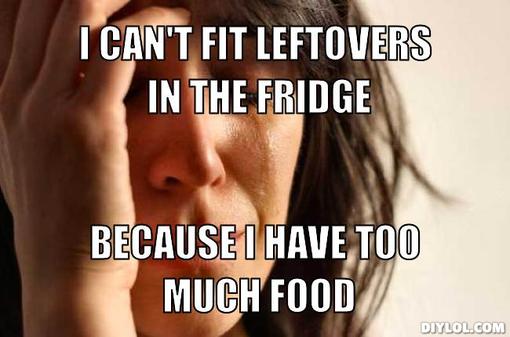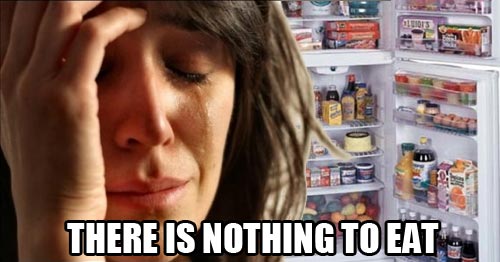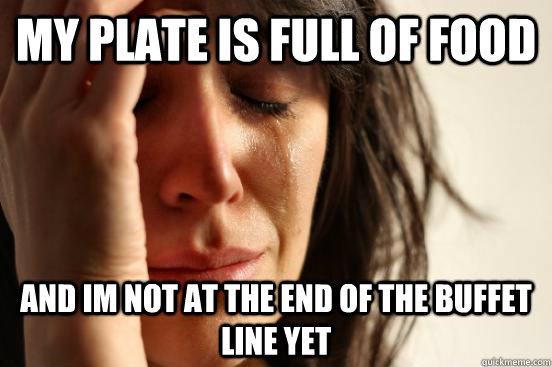Think.Eat. Save. Just another program or intentional Christian living?
 A recent article in National Catholic Reporter raised awareness on food consumption based on this year's UN World Environment theme "Think Eat. Save. Reduce Your Foodprint." Based on statistics from The U.N.’s Food and Agriculture Organization, the article estimates that "worldwide, people waste 1.3 billion tons of food annually, or a third of global food production. At the same time, one in seven people globally go to bed hungry."
A recent article in National Catholic Reporter raised awareness on food consumption based on this year's UN World Environment theme "Think Eat. Save. Reduce Your Foodprint." Based on statistics from The U.N.’s Food and Agriculture Organization, the article estimates that "worldwide, people waste 1.3 billion tons of food annually, or a third of global food production. At the same time, one in seven people globally go to bed hungry."
Simultaneously, at a general audience, Pope Francis addressed this same topic, stating that a "culture of waste" devalues and diminshes all of life, both human and the personhood of the Earth. "If you break a computer it is a tragedy, but poverty, the needs, the dramas of so many people end up becoming the norm."
 What does copious consumption and profous storage of food say about us as a global society? Does the average person purchase more food than necessary? In kitchen cabinets, the pantry closet, the refridgerator and freezer - how many of those items will we use regularly or did we purchase the item "just in case" (we run out, the weather is stormy when we need it, hell freezes over, etc)? How often does something get tossed, ground into pulp in the waste disposal or sit on the shelf until the expiration date kicks in?
What does copious consumption and profous storage of food say about us as a global society? Does the average person purchase more food than necessary? In kitchen cabinets, the pantry closet, the refridgerator and freezer - how many of those items will we use regularly or did we purchase the item "just in case" (we run out, the weather is stormy when we need it, hell freezes over, etc)? How often does something get tossed, ground into pulp in the waste disposal or sit on the shelf until the expiration date kicks in?
More considerations. Does our insidous behavior derive from a post-modern entitlement (i.e. I deserve deserve to buy that item/ I have a right to purchase and consume whatever and however much I wish)? Or does the answer lie in our own self-preservation and even our own identity? (i.e. I need everyone to know that I purchase an abundance of name brand items; I need to have that food item always stocked because you never know if a store will carry it when I need it at a moment's notice. etc). Or have we just grown so accustomed to super-sizing everything that we just take for granted that we might just be able to do with less?
 Waste is costly
Waste is costly
Over-consumption costs a fortune in more ways than one. For example, in America, annual medical expenditures attributable to obesity doubled over a ten year period, costing the United States as much as $147 billion per year in health care costs. At the same time, starvation exits on the local level as well as the international community. If we view those statistics through the lens of Christianity (never mind just plain old humanity), what's just about that kind of living?
Think about the scale of imbalance of over consumption. If you live in the United States, ask teachers who work with children in urban, suburban and rural areas about the number of children who show up hungry in the morning because the last meal that they ate was a school lunch. (Don't think for a minute that it doesn't happen in your own community because it does.) Talk to social workers who visit the elderly population who still live without assistance about the malnutrition that occurs on a regular basis. Did you know that nursing homes are subject to a regulation that mandates that they provide ample food supplies to their residents; they cannot be found withholding food even to those residents who really aren't all that hungry after a certain age and don't eat half of what they're served. The excess and uneaten food gets thrown out on a daily basis while soup kitchens and food pantries host anomolous numbers who stand in line for a bag of groceries or for a hot meal and must turn people away when the stocks deplete. The systematic disequilibrium is staggering.
What we spend in over-consumption and waste could actually be a viable way to feed the hungry, a Gospel imperative. "Feed the people dying hunger, because if you do not feed them you are killing them. " (Gaudiem et Spes, 69) Strong words with stronger consequences if we fail to heed them.
Christian identity
What does this imbalance of too much as opposed to too little say about the Christian community and the Christian belief of justice tempered by charity? In a consumer-driven society, how we do we re-evaluate a culture of waste within a Christian context so that we can feed the hungry and preserve the precious gift of the earth's resources? The person of Earth yearns to marry its ecology in an environmental relationship in a partnership with us, the peoples who benefit from Earth's magnanimous gifts that are meant to be nurtured and equally shared. Can we begin to view ourselves as a discipleship of Christian witness as a community, rather than individuals who form a collective crowd? If Catholic Christians really believe that the banquet table of Eucharist is the feast of life, then we're accountable that everyone should eat and drink equally, not some more than others.
Letting the past inform the present to change the future
Consider the post-WWII household and the people who lived through The Great Depression. Their experience of going without in lean times informed how they viewed food and consumption. Nothing was wasted. Sunday's roast beef, potato and carrot dinner became Monday night's hash. If someone declined dinner because the meal didn't suit a particular taste, no one offered an optional menu. People ate what was offered or they went without.
When the weather allowed, entire neighborhoods ate fresh vegetables from small urban gardens. The bones from fish, chicken or cuts of beef were used to make fresh soup stocks and sauces. Unused pie dough turned into sugar tarts. Neighbors who composted shared their rich home grown fertilizer each spring when the winter soil was ready to be turned by spades and shovels. Small neighborhood grocers provided essentials for what people could not raise or grow on their own. If people borrowed a cup of sugar or a few eggs, they were replaced within a day or two. One family car served as the vehicle that was only used when the destination could not be reached by walking or public transportation. One telephone, one television and one bathroom served families up to eleven and twelve people.
Food was a central player. When someone died, everyone from the parish and the neighborhood brought food for days and stayed to visit, so the bereaved could take the time to mourn and heal. What was not consumed was shared with the families who came to visit. When weddings occurred, the entire community gathered to celebrate, including children, bringing multitudinous fare that adorned the tables and went home with the guests at the end of the feast. When people left a room, they shut the lights off; when the left the house they lowered the heat. No one really thought about these practices as intentional living. This was how people lived, survived and took care of one another because they had lived through an era that taught them that excess was uncessary and preservation meant that others would be served.
Everything changed when "we" became "me." Entitlement has stretched its toothy tentacles into our gumlines to produce a general hedonism that feeds a way of life that Pope Francis has named a "culture of waste." For the Christian community, that's a copious walk in a different direction than where the Gospel points us.
Change is possible
Can we return to a post-war era in a post-modern time? No, of course not. But we can let that way of life and that ontology inform us of a different way of being here and now. Can we create a paradigm shift of less is best within a society that believes that more is better? Some Christians are already actively engaged in intentional living, social and economic justice and service on behalf of the poor. They inspire us all to live by the spirit of the Beatitudes and Lady Poverty. However, the total commitment "to respect and protect creation, to be attentive to every person, to counter the culture of waste and disposable, to promote a culture of solidarity and of encounter" must be at the heart of each Christian and every Christian community, in our homes, schools, business practices - in everything we do. Gospel accoutability erradicates excess, plain and simple. Without that kind of Christian commitment on everyone's part, Think, Eat, Save: Reduce Your Foodprint is just another program.
 Denise Morency Gannon
Denise Morency Gannon
Reader Comments